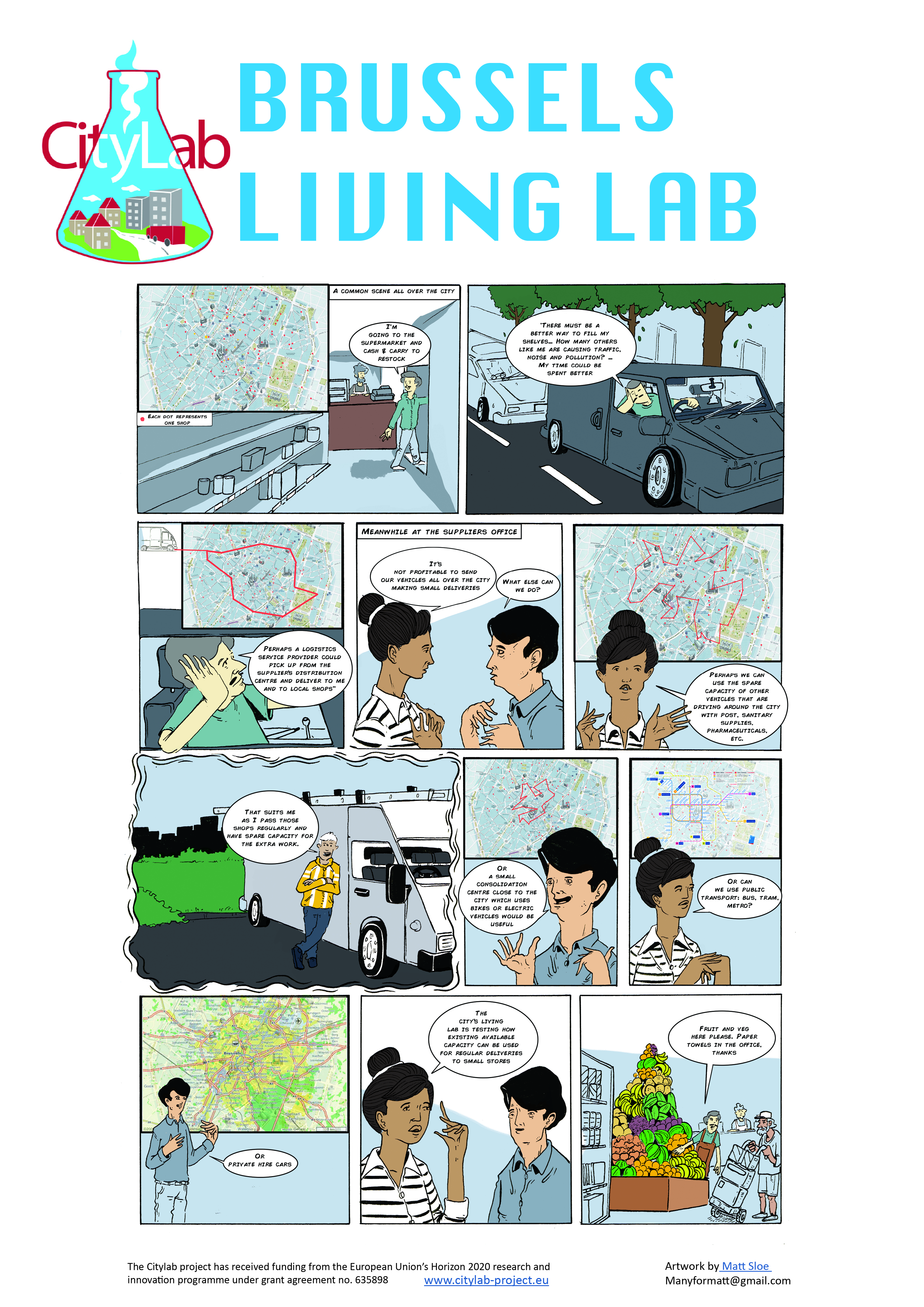
Project News
Consolidation Centres Can Improve Air Quality in Towns and Cities 17/7/18
Project formally ends (30/4/18)
Final conference reported in Newsletter #6 30/4/18
Transferability leaflet 30/4/18
Observatory brochure updated 19/4/18
Living lab handbook 18/4/18
Final conference, 23/24 April, Brussels
Oslo video 5/4/18
Poste Italiane video 27/3/18
Future Public Sector Logistics Consolidation 23/2/18
Mobility is a Serious Game! 23/1/18
Newsletter #5 issued 20/12/17
Brussels-Mobility freight video 18/12/17
Brussels-Capital SUMP award 18/12/17
Implementation posters 8/11/17
Citylab event in Rome 20/10/17
METRANS UF Conference presentations 17/10/17
Citylab at the Civitas Forum 27/9/17
Living lab updates 27/9/17
CiTTi conference article 13/10/17
Living lab animation 25/9/17
Instant deliveries presentation 30/8/17
Consolidation and EV presentation 22/6/17
Newsletter #4 issued 31/5/17
Freight observatory findings 17/5/17
Right on time! presentation 9/4/17
Freight in the City presentations 1/3/17
Implementation dashboards now live 28/2/17
European Review of Regional Logistics (including feature on Citylab) 20/12/16
| Motivation and concept | |
|---|---|
| Brussels has around 900 independent small grocery stores. Surveys indicate that the majority of the storeowners get their products by going to a wholesaler. More than 50% of the independent storeowners visit a wholesaler on own-account at least twice per week. These trips are known to be inefficient because of low vehicle fill rates. Another underexposed but inefficiently used type of vehicles are those related to services. Service-driven companies have daily delivery and/or service trips, but load optimization is not a priority since they are mostly contractually obligated to execute specific delivery routes, regardless of whether they are fully loaded. Examples are plumbers and cleaning services.
The main concept here is to introduce a new online sales channel and to use spare vehicle capacity from existing service-driven companies to reach these stores. The goal is to replace inefficient storeowner collections and increase the vehicle fill rates factors of the service-driven companies. The service-driven company, or owner of spare transportation capacity, in the implementation was Febelco, a distributor of pharmaceutical products. |
|
 |
|
| Implementation | |
| A dedicated assortment of Procter & Gamble (P&G) products was offered in a web shop, operated by an external distributor. Storeowners could order P&G products in the web shop and pay online. Following the payment, the distributor informed Febelco that they would have to carry out a delivery and delivered the products to the distribution centre of Febelco. Febelco added the additional delivery to the routing of its regular service trips. | |

| |
In total, five storeowners placed an order that was delivered by Febelco. In case of own-account pick-ups this would have led to 19 vehicle kilometres. The deliveries by Febelco did not yield any additional kilometres to the original routing of the trips. Consequently there was a reduction in emissions. Surveys among storeowners revealed that their behaviour regarding product purchasing and acquirement (delivery and/or pick-up) is key. There is a reluctance to pay for products prior to delivery. Going to the wholesaler on own account is a habit and not considered a cost. | |
| The implementation proved that it is operationally feasible to use spare transportation capacity in vehicles of a service-driven company operating in an urban context. The main challenges relate to engaging storeowners by changing the perception that supermarket promotions are always cheaper, that supplying on own-account does not involve a cost and by convincing them to start ordering and paying online to avoid inefficient own-account trips. A wider product assortment should be offered to avoid these inefficient wholesaler pick-ups. | |
Last update: 23 March 2018 |
|
| Cartoon illustrating the concept | |

Cartoon produced by: Matt Sloe Link to full-size cartoon